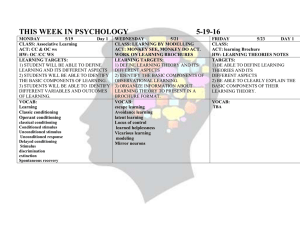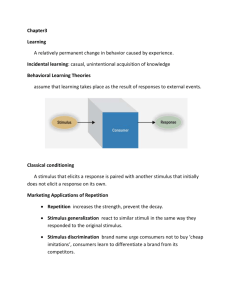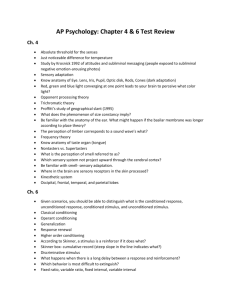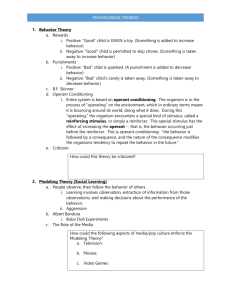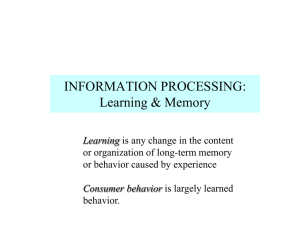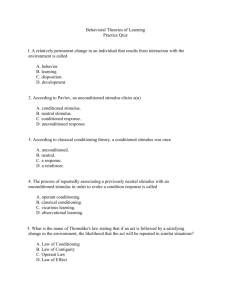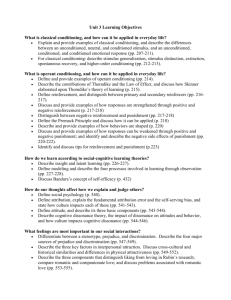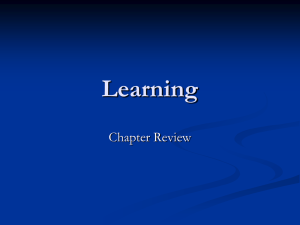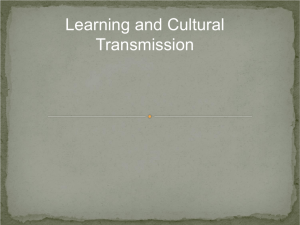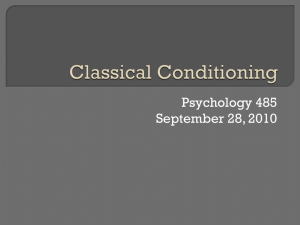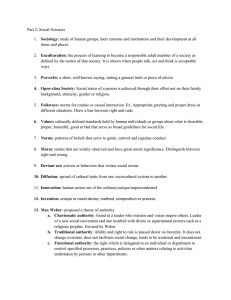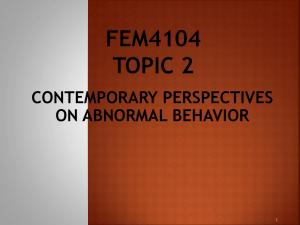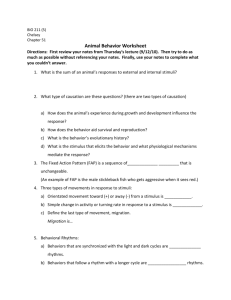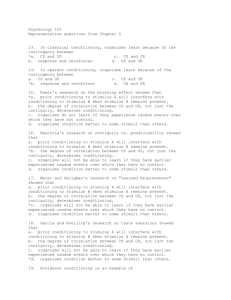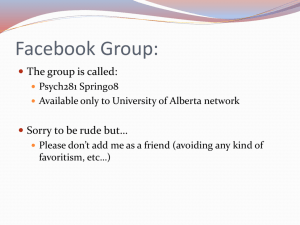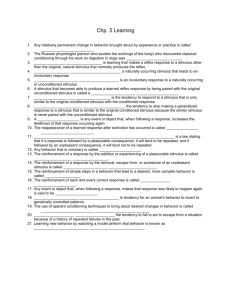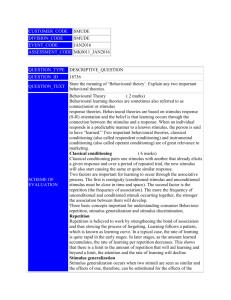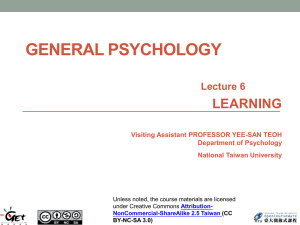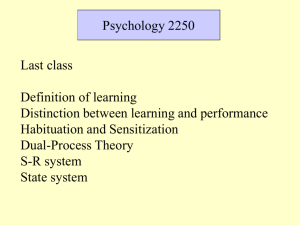EXAM CHECKLIST
advertisement
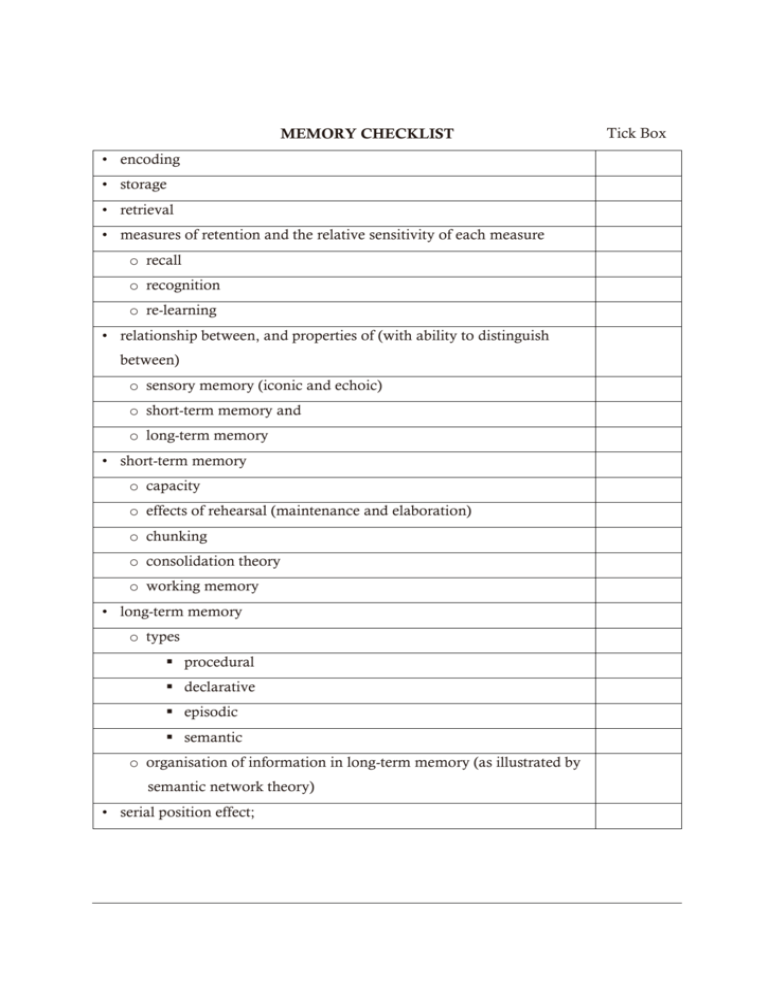
MEMORY CHECKLIST • encoding • storage • retrieval • measures of retention and the relative sensitivity of each measure o recall o recognition o re-learning • relationship between, and properties of (with ability to distinguish between) o sensory memory (iconic and echoic) o short-term memory and o long-term memory • short-term memory o capacity o effects of rehearsal (maintenance and elaboration) o chunking o consolidation theory o working memory • long-term memory o types procedural declarative episodic semantic o organisation of information in long-term memory (as illustrated by semantic network theory) • serial position effect; Tick Box • theories of forgetting o retrieval failure theory o interference theory o motivated forgetting o decay • the features of the forgetting curve o be able to graph and interpret • the contribution of anterograde and retrograde interference effects in recall • organic causes of forgetting o anterograde amnesia o retrograde amnesia • memory decline over the life span; • memory enhancement through o quality of encoding (organisation) o the use of context dependent cues o state dependent cues o mnemonic devices (narrative chaining and method of loci); • formation of operational hypotheses related to a memory task • interpretation of p values; • ethical principles in the conduct of psychological research related to memory. LEARNING CHECKLIST • behaviours not dependent on learning (and explain their differences) o reflex action o fixed action patterns o behaviours due to maturation • classical conditioning o Pavlov’s original experiments o conditioned stimulus o unconditioned stimulus o conditioned response o unconditioned response o processes of acquisition o extinction o stimulus generalisation o stimulus discrimination o spontaneous recovery • one-trial learning o taste aversion; o distinguish from classical conditioning • trial and error learning o Thorndike’s puzzle-box experiment; • operant conditioning, o Skinner’s original experiments (the Skinner box) o Processes of acquisition, o extinction, o stimulus generalisation, o stimulus discrimination, o spontaneous recovery; • ethical issues in conditioning behaviour o Watson’s ‘little Albert’ experiment; Tick Box • comparison of classical and operant conditioning, o role of learner, o timing of stimulus o response and nature of response (reflexive/voluntary); • observational learning (modelling) processes: o attention, o retention, o reproduction, o motivation, o reinforcement; • Bandura’s experiments with observational learning in children; • ‘learning set’ and its influence on future learning. Research investigation • formation of operational hypotheses • research design methods o be able to select an appropriate design • ethical considerations o apply appropriate ethical principles in the conduct of psychological research; • collection and interpretation of data • apply appropriate statistical measures o Mean, median, mode and standard deviation must be known • reporting of findings and conclusions Tick Box
